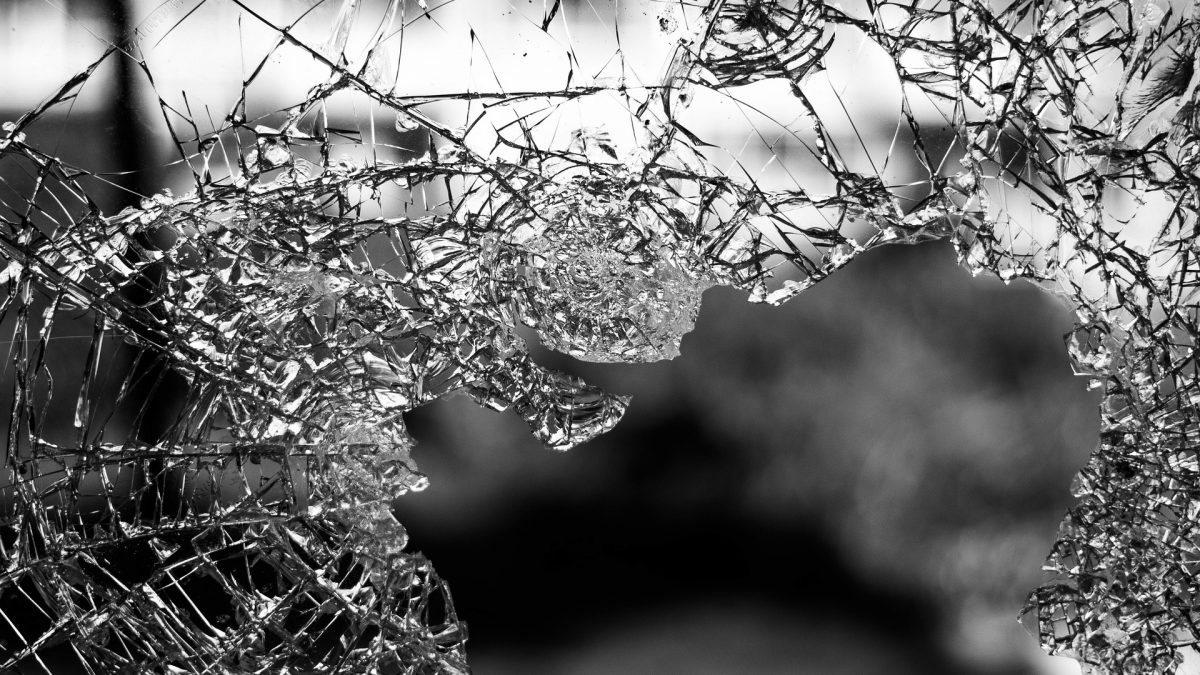
The Future Lawyer Weekly Briefing – W/C 13th February 2023
February 13, 2023
A law student’s thoughts on answering problem questions at university
February 14, 2023“Disclaimer: This article is written by Anna Wallace. Any views and opinions expressed in this article are those of the writers and do not necessarily reflect the views or positions of the team editor nor any entities they represent.”
This report contains details of human slavery that may be upsetting for some readers.
Boasting enormous skyscrapers and human-engineered islands, the city of Dubai has become symbolic of the endless potential for human engineering. However, beyond the ‘glossy visage of the city lies’ an uncomfortable truth that reveals the pervasiveness of human rights abuses throughout the city’s construction industry.
History of Dubai:
In the mid 18th century, Dubai was no more than a small village with a ‘relative wealth’ due to its early pearl industry. However, once independent from its British colonial rule in 1971, oil was discovered in the city which provided the ‘nomadic sheikhs in control of Dubai’ with ‘enormous fortunes’. ‘Over the next few decades’, with its ‘lack of taxes’ and access to cheap labour, the city began to attract non-nationals looking to promote foreign investment. ‘Between 2000 and 2005 the GDP had a growth rate of 13% per year’ and ‘today only 5% of Dubai’s population is comprised of locals.’
Dubai continues to be one of the fastest growing economies driven by trade and investment, but primarily through its thriving tourism industry. ‘In 2019, the contribution of the travel and tourism sector to the UAE’s GDP was nearly AED 180.4 billion, which is equivalent to 11.6% of the total GDP.’
Road to growth:
However, accommodating for the flock of wealthy fortunates coming to Dubai for a taste of luxury, within such a short time span, inevitably lends itself towards a shocking system of corruption which has created this unprecedented growth. According to the Government of Dubai Statistics Centre, a staggering 96% of its employed population is made up of immigrant workers. Migrant workers are largely recruited from India, Pakistan, Bangladesh, Nepal and Sri Lanka (amongst others) who are hired from their home countries by local recruitment agencies working on behalf of UAE (United Arab Emirates) based businesses. Workers are attracted to work opportunities in Dubai through promises of monthly salaries of $300 and food and accommodation in return for manual labour, 9-5, five days a week. These promises offer comparatively lucrative opportunities for the migrant workers to leave their impoverished, rural communities and earn money that they can send home to their families. The workers are required to take out loans from recruitment agencies to pay ‘visa fees’ (which are legally required to be covered by the recruitment agencies under UAE law).
However, upon arrival in Dubai, workers are exposed to the grim reality which reveals much of the benefits they were promised in return for their labour were built upon false promises with no secure legally binding foundations. Consequently, workers are forced to work for 14 hours a day for 6 or 7 days a week in heats up to 50 °C. Despite labourers being required sufficient breaks by law, health and safety violations are rampant and many workers describe deaths from heat exhaustion, overwork and suicide. However, in 2005 the government of Dubai reported only 39 deaths by workers by all nationalities in the entire country. The Indian consulate recorded a total of 971 death cases in 2005, of which 61 were registered accidents which “indicate discrepancies in the health and safety reports of the workers, and at the very least gross oversight by the Dubai authorities” says Nicholas Cooper from the University of New Mexico.
The accommodation that they are provided with is described by the Human Rights Watch as being ‘less than humane’ which is frankly an underestimation of the appalling conditions that the workers are forced to live in. The Shanty Towns on the outskirts of the city which accommodate for the migrant workers host rooms which are shared by 10 or more men, with no ventilation and one outdoor bathroom for up to 45 men. ‘Sewage systems are broken’ and ‘basic utilities are inadequate’. An undercover reporter from ‘Vice’ news revealed that these shanty towns are not provided with clean water or gas to use the hobs they are provided with. Consequently, many workers report illness from being forced to drink unsanitary water and a diet routinely consisting of just rice and potatoes.
The workers’ passports are confiscated and the wages that they agreed are almost never honoured. Whilst this is illegal, most workers receive salaries of just $175 a month. However, this base salary is in fact withheld for the first few months of their contract to ensure that the workers do not ‘quit’. This means that it is often years before the workers can pay off their loans and send any remittances back to their families.
Workers are faced with few options to escape these dire situations as unionizing is forbidden and without their passports, workers are unable to leave the country. Facilitating the pervasiveness of human rights abuses in Dubai is an underlying employment system known as the ‘Kafala system’.
The Kafala System:
The Kafala System allows for the flux of migrants into Dubai to meet labour demands while simultaneously quelling this population through its ‘lax regulations and exclusion from the legal framework in the gulf states’ (Hamza, 2015, p.81). The private sponsorship system is used across the Gulf countries as it allows for private citizens and companies to oversee the regulation of its workers rather than the government. The Kafala System imposes a restrictive political order over Dubai nationals which forbids unionizing, collective bargaining, striking, or protesting. This lack of legal power means that workers have very little options when faced with poor employment conditions that do not match the terms agreed upon when recruited by agencies in their home countries. Instead, they are forced to sign contracts that they often do not understand and are different from what they were originally promised.
The Kafala system is even recognised by the official UAE Labour Law website as ‘(putting) workers in vulnerable situations where they are dependent on their employer, which often leads to exploitation and abuse with little ability to seek outside assistance.’
Women:
The imprisoning and cruel treatment that migrants face in Dubai is not, however, exclusive to the construction industry. Domestic female workers hired by recruitment agencies in their home countries are too subject to the unscrupulous treatment endured by their male counterparts. Many women work as domestic maids for the Emirati elite, ‘recruited through a legal sponsorship that links the employment and residency of a domestic worker to a specific employer’. This sponsorship means that the unskilled laborers are often controlled by their employers who have responsibility over their visa and legal status. This leaves many women vulnerable to exploitation as their passports are confiscated upon arrival in Dubai and women who do report their physical and sexual abuse are charged with the crime of running away from their employers and breaching contract. When women do report the sexual and physical abuse they have been subjected to, they are often criminalised for engaging in ‘illegal sex acts’ and women who are forced into prostitution face little protection from authorities as anti-trafficking and anti-prostitution regulations are rarely, if ever, actually enforced.
Possible reforms:
Nicholas Cooper suggests that there needs to be a greater enforcement of human trafficking offences which prosecutes the perpetrators of human trafficking crimes and provides better protection for the victims. He suggests that this requires the implementation of a series of formal procedures for law enforcements and Ministry of Labour officials to successfully identify the victims of trafficking and track down their abusers. He mentions that educational initiatives need to be imposed to help people identify the potential signs of trafficking and forced labour to report their concerns to authorities. He emphasises that people reporting such crimes should be able to feel confident that they are not putting potential victims into vulnerable situations where they could be punished for any unlawful acts committed as a result of their trafficking. Whilst the responsibility of these reforms primarily lays with the UAE government and local administration, understanding the responsibility you bear as an individual can have tremendous effects:
How does this affect you?
In 2019 (pre COVID-19 associated travel restrictions) 1.2 million British tourists travelled to Dubai. Coming in third for the country with the most tourists to Dubai, British tourists continue to drive the demand in Dubai for luxurious construction projects. The exploitation of workers may also be much closer to us than we imagined, with many hotel staff reporting unfair working conditions and an inability to leave their jobs as their passports had been taken for ‘safekeeping’. This uncomfortable reality leaves a sour taste and suggests that we as tourists must bear some level of responsibility for our complicity in this shocking reality of modern-day human slavery. Whilst I would like to imagine that most tourists travelling to Dubai are simply unaware of this reality, I hope that this article will allow tourists to make more considerate decisions about where they choose to travel to. By reducing the demand for new construction projects, we can curb the need for the constant supply of workers in Dubai. Whilst I do not, at present, have any answers for the problems this will continue to create for a lack of access to work opportunities for migrants in their home countries, I hope that this article can uncover the extreme cost to human life that we must pay for infinite growth and unprecedent luxury.





